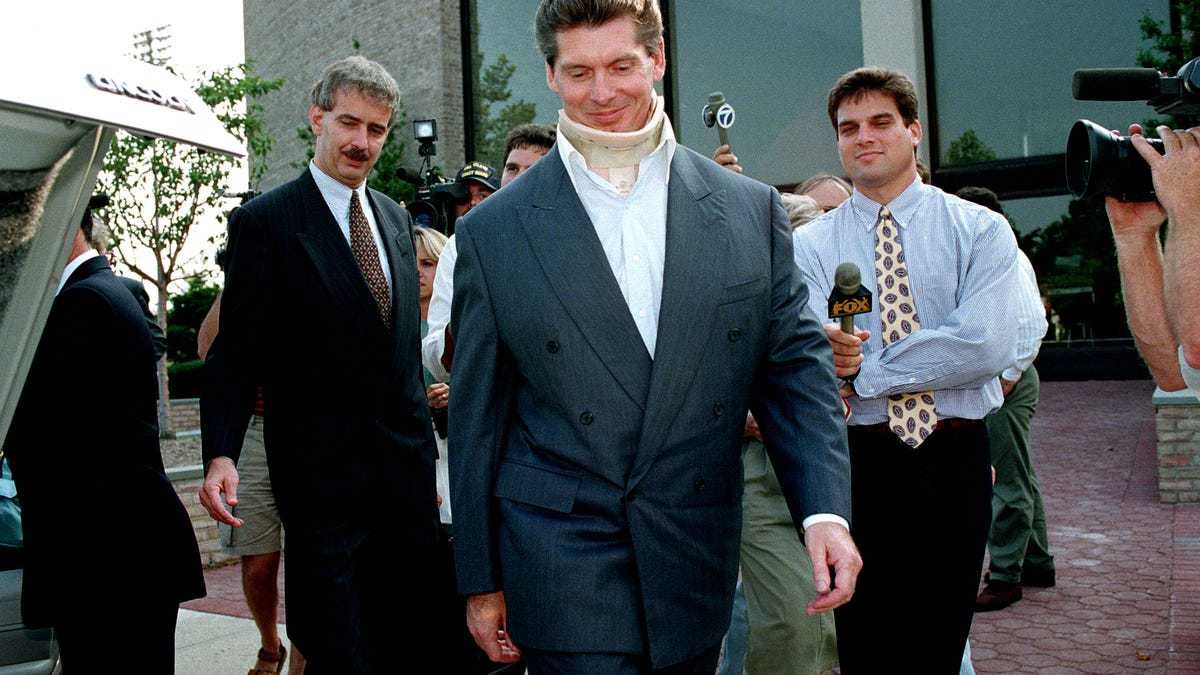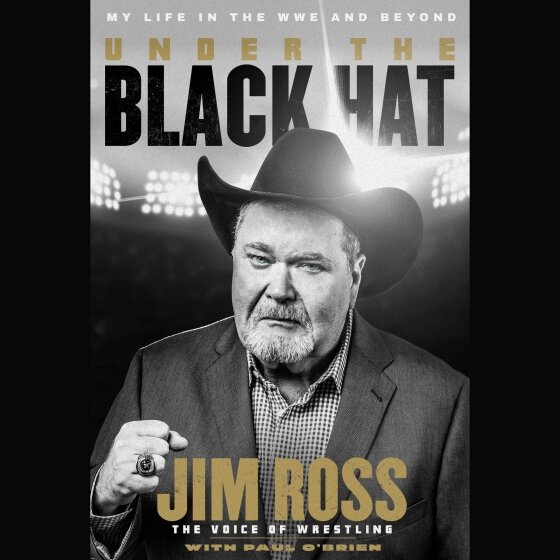Vince McMahon: The Commentator
It may seem hard to believe considering the fan I became, but as a youngster, I didn't like wrestling. Hated it. As an Eddie Murphy-obsessed 11-year-old, my reward for staying out of trouble all week was to stay up late and watch Saturday Night Live. Imagine my disappointment when the local news went off, and instead of comedy sketches, I was bombarded with the assault on the senses that was Saturday Night's Main Event. I always chalked up my hatred of pro wrestling (specifically WWF, because it was all I had ever seen) to two main factors: the antics of Hulk Hogan—I found his "hulking up" incredibly ridiculous—and the commentary of Vince McMahon. The constant "1, 2, he got him! No, he didn't." seemed like an insult to my intelligence.
My, how things changed.
Now, of course, I love wrestling. And looking back at the old 80s WWF golden era, I realized something. Vince McMahon was a pretty good commentator. I believe the consensus is that the quality of his play-by-play did slip as time went on, but in the 80s and early 90s, he was top-notch. He may never enter the conversation of most outstanding ever—we will leave that to the IWC to debate ad nauseam regarding Jim Ross, Gorilla Monsoon, Gordon Solie, etc—but he was very solid and perhaps much better than people may remember.
It's not surprising that he was good at it if you think about it. Commentary was Vince's foot in the door to the wrestling world after expressing interest to his father, Vince Sr., at getting into the business. He spent years at the commentary desk before taking over the company, then remained on the mic until the late 90s.
Let's look at some ways Vince McMahon excelled as a play-by-play man.
He was a good straight man.
Part of what makes a commentary team enjoyable is the chemistry between the individuals at the table. The classic commentary team as we've come to know it is a play-by-play man who is pretty much down the middle and a color commentator who is either a flat out heel or sides with the heels most of the time. Vince was a great straight man for the comedic heel color commentators he worked with: Jerry Lawler, Bobby Heenan, and especially Jesse Ventura, who is widely credited with being the first "heel" commentator.
For an example of McMahon and Ventura's chemistry, there is a match on YouTube that you may want to seek out. It's an otherwise dull match between Koko B. Ware (with his parrot, Frankie) and Frenchy Martin, but the commentary is gold. Vince and Jesse argue about whether Koko pulled Frenchy's hair. Ventura goes on about his Hollywood leading man's good looks, and McMahon compares him to Fatty Arbuckle (granted, that's an old reference, but funny nonetheless). My favorite part, though, is when the camera cuts to Frankie on his perch watching the match, and Ventura wonders what parrot soup tastes like. McMahon's outrage as Ventura lists off ingredients he thinks would have to go in the soup is fantastic. "You'd have to put carrots and potatoes in it for flavor, a bird that old is going to have some tough meat!" Ventura breaks slightly and chuckles to himself, and you can almost hear Vince lose it as well. They were quite the team.
He made big things feel special.
Before we get into this, let's face facts—Vince would sometimes easily get carried away. A lot. He practically had a Ph.D. in Overreacting, constantly making big deals out of some of the more mundane things that happened in the ring. However, that same enthusiasm was put to great effect when something extraordinary did happen. For evidence of this, look no further than what is perhaps his most famous call, at the end of the first-ever Hell in a Cell match between The Undertaker and Shawn Michaels: "That's gotta be Kane!"
The way Vince freaks out when the lights go down, and Kane (w/Paul Bearer) makes his way to the ring and pulls the door to the cell off its hinges is exactly what was needed at that moment. Obviously, Jim Ross (who was also on commentary for the match) could have sold the moment, but it would have felt different. Vince's specialty was the spectacle—the extra goings besides the "maneuvers"”
He was an expert at pushing a narrative.
Vince knew how to tell a story with his commentary. It's essential for all commentators to do, but in my opinion, that's where Vince excelled. For an example of this, let's look at Bret Hart vs Owen Hart at Wrestlemania X. Vince (w/Jerry Lawler on color) continually mentions this brother vs brother blood feud and questions Bret's tenacity.
“Bret protected his little brother as a kid, I wonder if he has the killer instinct in this match like he does in all others."
When Owen comes out on top, it makes you wonder if Bret let up a little and did not press as he would have against someone else.
And who can forget the great call at the main event of Wrestlemania XII, when Shawn Michaels came out on top following a gruelling hour-plus Iron Man match to win his first World Heavyweight Championship: "The boyhood dream has come true for Shawn Michaels!"
One that perfectly encapsulates Vince's storytelling ability is from a battle royal on Saturday Night's Main Event in early 1987. Andre the Giant aligned with Bobby Heenan and ended his friendship with Hulk Hogan. The end of their friendship was the fuel to sell their feud going into Wrestlemania III. Here is a portion of Vince's commentary from the match:
"Well, you know you can't help but reflect back on the past relationship with these two, as the announcements are made for the participants in the battle Royal coming into the ring, when you look back to the past, I mean these two men, Andre and Hogan...they were like brothers. I mean, each helping the other out along the way, ensuring they were seeing things the right way. I can remember when Hulk Hogan was attempting to become champion of the world, Andre the Giant right there at his side all the way, I can remember talking about how he chose Andre as his role model in his quest for the title, how Andre would conduct himself in the company of children, his kindness to them. How we would show his sense of fair play in as well as out of the ring. His enormous pride in himself and for mankind. But I'll tell you... boy is Andre taking a detour. And don't just blame Andre's conduct on Bobby "The Brain" Heenan, because down deep! Andre had to harbor resentment! He had to harbor Jealousy! And whatever dark secrets Andre has in his heart...but I think I can speak for almost every fan in the world. We've all been thrown to the mat by Andre's recent actions!"
While he would become most famous as the evil heel "Mr. McMahon" his commentary from the 80s and early 90s is worth revisiting (or checking out for the first time, for the younger fans). Wrestling commentary is not as easy as some may think. While he may never be considered one of the best of all time, and he never bothered to learn the names of all the moves, Vince had some great moments on commentary that will go down in wrestling history.



